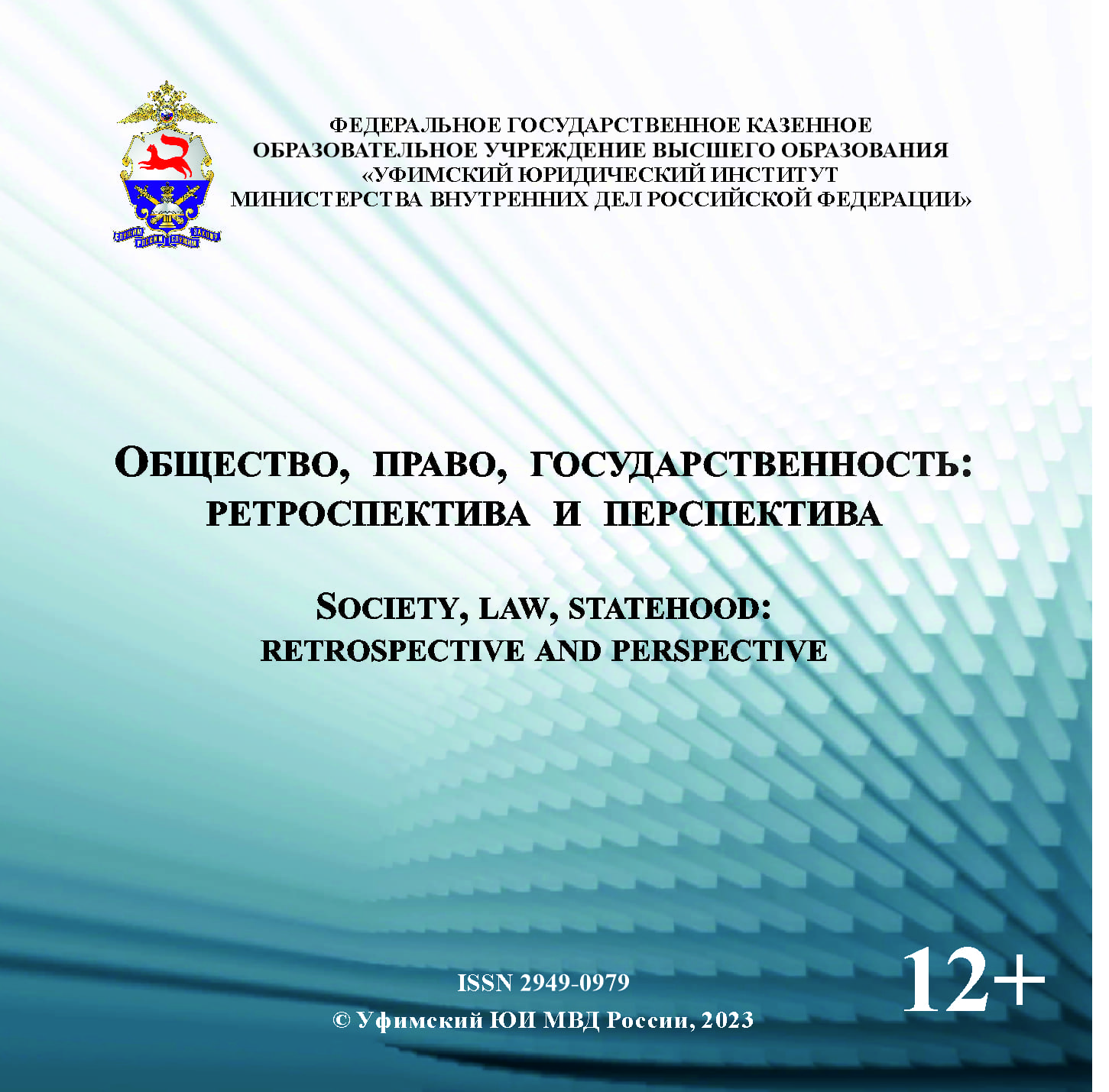employee from 01.01.2016 until now
Ural Law Institute of the Ministry of Internal Affairs of the Russian Federation (kafedra filosofii, psihologii i gumanitarnyh disciplin, docent)
from 01.01.2016 until now
Ekaterinburg, Ekaterinburg, Russian Federation
from 01.01.2020 to 01.01.2025
Orenburg, Orenburg, Russian Federation
UDC 659.113.7
UDC 351.741
The study presented in the article is aimed at identifying the criteria for the effectiveness of social advertising of internal affairs agencies, that allow press services and other departments concerned to create a media product that arouses interest of the target audience, as well as at developing recommendations for creating social videos that are effective in solving urgent problems facing internal affairs agencies. The study is based on the use of quantitative and qualitative methods of sociology: sociological survey, focus group method, content analysis. The quantitative methodology of content analysis is supplemented by a cultural and psychological approach. The authors of the study have also developed their own methodology for assessing the effectiveness of social advertising. The results of the study presented in the article will allow opening new frontiers of interaction between the police and civil society in the Internet space, offering the press services of the Ministry of Internal Affairs of Russia fundamentally new strategies for information support of the activities of internal affairs agencies, shaping public opinion about the activities of the law enforcement system.
social advertising, agitation, information and propaganda work, advertising ability, archetypes, media products
1. Boyeva O. M., Seredin A. P. Features of information and propaganda work in the internal affairs bodies of the Russian Federation // Colloquium-journal. 2019. No. 9-6 (33). P. 110–112. (In Russ.)
2. Bolshakov Ye. A. On the issue of information and propaganda work in the units of the Russian Ministry of Internal Affairs and ways to improve it // Academic thought. 2018. No. 3 (4). P. 121–124. (In Russ.)
3. Kirillovykh A.A. Social advertising: approaches to normative definition and legal regulation // Legislation and economics. 2012. No. 10. P. 71–83. (In Russ.)
4. Timchak K. N. Proactive system as a technology for constructing an activity model of social advertising // Bulletin of Moscow University. Series 21: Management (state and society). 2017. No. 4. P. 37–54. (In Russ.)
5. Bokova Yu. V., Neverova Yu. S. Social advertising: effectiveness assessment // Modern society: issues of theory, methodology, methods of social research. 2020. Vol. 1. P. 19–26. (In Russ.)
6. Kalinina L. L. Social advertising and its role in modern Russian society // Bulletin of the Russian State University for the Humanities. Series: Economy. Management. Law. 2020. No. 3. P. 15–24. DOI: https://doi.org/https://doi.org/10.28995/2073-6304-2020-3-15-24 (In Russ.)
7. Afonin V. V. The role and importance of social advertising in preventive measures to promote road safety // Scientific bulletin of the Oryol Law Institute of the Ministry of Internal Affairs of Russia named after V. V. Lukyanov. 2017. No. 1 (70). P. 6–8. (In Russ.)
8. Ilyina V. V. Features of Russian social advertising // Communicology : electronic scientific journal. 2018. Vol. 3, No. 4. P. 57–72. (In Russ.)
9. Golenkova Z. T., Kalmykov S. B. Efficiency and quality of social advertising // Theory and practice of social development. 2017. No. 3. P. 9–19. (In Russ.)
10. Propp V. Ya. Morphology of a Magic Tale. Moscow : Labirint, 2001. 144 p. (In Russ.)
11. Campbell J. The Hero with a thousand faces: Myth. Archetype. Unconscious / ed. I. Starykh; trans. from English by K. Semenov. St. Petersburg : Sofia, 1997. 336 p. (In Russ.)
12. Vogler K. The Writer’s journey. Mythological structures in literature and cinema. Moscow : Alpina non-fiction, 2015. 476 p. (In Russ.)
13. Indyk U. Psychology for screenwriters. Conflict construction in the plot. Moscow : Alpina non-fiction, 2014. 348 p. (In Russ.)







